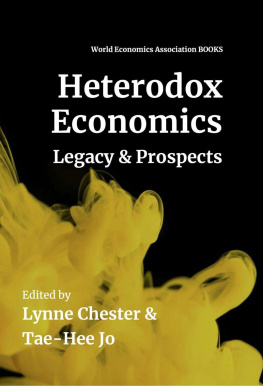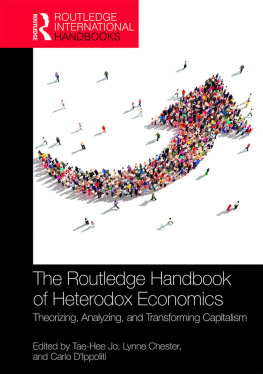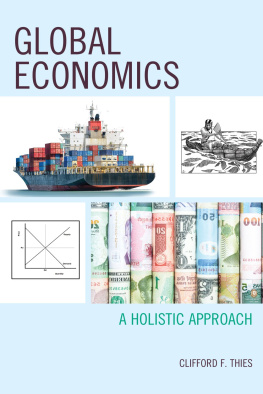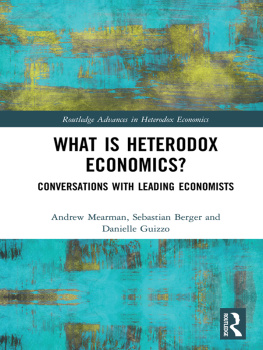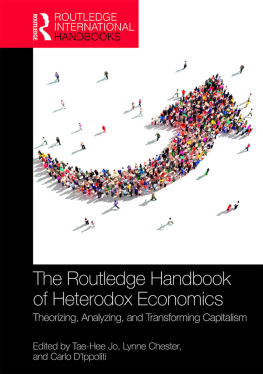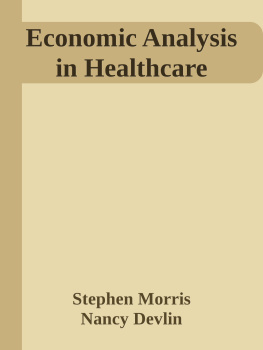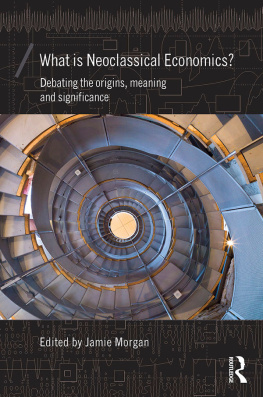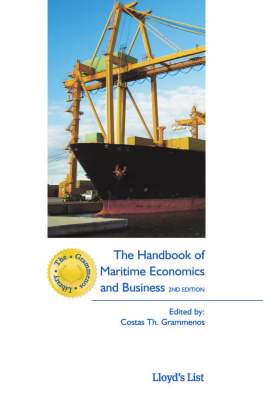
International Economics
Now in its third edition, Hendrik Van den Bergs International Economics: A Heterodox Approach covers all of the standard topics taught in undergraduate international economics courses. Written in a friendly and approachable style, this new edition is unique in that it presents the key orthodox neoclassical models of international trade and investment, while supplementing them with a variety of heterodox approaches. This pluralist approach is intended to give economics students a more realistic understanding of the international economy than standard textbooks can provide.
Changes to the new edition include:
updates throughout to reflect recent world events, including coverage of trade negotiations and the Greek crisis;
expanded discussion of pluralist approaches with more coverage of alternative schools of thought;
discussions of the growing financialization of global economic activity;
additional real-world examples;
increased coverage of environmental issues; transnational corporations and their behavior in the international economy; the difference between international investment and international finance; and monetary history;
a consolidated and updated chapter on international banking.
This book also maintains a broad perspective that links economic activity to the social and natural spheres of human activity, with emphasis on the distributional and environmental effects of international trade, investment, finance, and migration. Chapter summaries, key terms and concepts, problems and questions, and a glossary are included in the book. A Student Study Guide and an Instructors Manual are available online.
Hendrik Van den Berg is Professor Emeritus at the University of Nebraska, and he continues teaching at Mount Holyoke College in Massachusetts, USA.
International Economics
A Heterodox Approach
Third Edition
Hendrik Van den Berg

Third edition published 2017
by Routledge
711 Third Avenue, New York, NY 10017
and by Routledge
2 Park Square, Milton Park, Abingdon, Oxon OX14 4RN
Routledge is an imprint of the Taylor & Francis Group, an informa business
2017 Taylor & Francis
The right of Hendrik Van den Berg to be identified as author of this work has been asserted by him in accordance with sections 77 and 78 of the Copyright, Designs and Patents Act 1988.
All rights reserved. No part of this book may be reprinted or reproduced or utilised in any form or by any electronic, mechanical, or other means, now known or hereafter invented, including photocopying and recording, or in any information storage or retrieval system, without permission in writing from the publishers.
Trademark notice: Product or corporate names may be trademarks or registered trademarks, and are used only for identification and explanation without intent to infringe.
First edition published by M.E. Sharpe 2012
Second edition published by Routledge 2015
Library of Congress Cataloging in Publication Data
Names: Van den Berg, Hendrik, 1949- author.
Title: International economics : a heterodox approach / Hendrik van den Berg.
Description: 3rd edition. | New York, NY : Routledge, 2017.
Identifiers: LCCN 2016022783| ISBN 9781138945043 (hardback) | ISBN 9781138945050 (pbk.) | ISBN 9781315671611 (ebook)
Subjects: LCSH: International trade. | Protectionism. | Investments, Foreign.| International finance. | International economic relations. | Emigration and immigration.
Classification: LCC HF1379 .V36 2017 | DDC 337dc23
LC record available at https://lccn.loc.gov/2016022783
ISBN: 978-1-138-94504-3 (hbk)
ISBN: 978-1-138-94505-0 (pbk)
ISBN: 978-1-315-67161-1 (ebk)
Typeset in 10/12pt Bembo MT Pro
by Cenveo Publisher Services
Visit the companion website: www.routledge.com/vandenberg
Contents
Figures
Tables
The second edition of International Economics represented a paradigm shift from the first edition, published back in 2004. The book was given the subtitle A Heterodox Approach with the second edition. This third edition continues with the heterodox approach, adding even more material from alternative perspectives and disciplines, and strengthening the books grounding in history and empirical evidence.
At the personal level, changing paradigms is not easy. My experience is perhaps best captured by the words of my favorite economist, John Maynard Keynes, in the Preface to his General Theory of Employment, Interest, and Money (1936, p. viii):
The composition of this book has been for the author a long struggle of escape, and so must the reading of it be for most readers if the authors assault upon them is to be successful, a struggle of escape from habitual modes of thought and expression. The ideas which are here expressed so laboriously are extremely simple and should be obvious. The difficulty lies, not in the new ideas, but in escaping from the old ones, which ramify, for those of us brought up as most of us have been, into every corner of our minds.
The noted twentieth-century French sociologist Pierre Bourdieu provided a clear explanation for our reluctance to change our perspective and question the knowledge that we have accumulated: the power of culture. Mainstream economics, like every other field, has developed a strong culture so overwhelming that few economists look outside the box that is the neoclassical paradigm. Bourdieu explained that adherence to the dominant culture permits us to navigate successfully within our fields. Cultural capital, which is the set of familiar behaviors, norms, beliefs, manners, and expressions that we deem as normal, gives those who fit the culture an advantage over those not familiar with the fields culture. Joseph Stiglitz (Needed: A New Economic Paradigm, Financial Times, August 20, 2011) wrote a critique of neoclassical economics in which he said that [c]hanging paradigms is not easy. Too many have invested too much in the wrong models. Indeed, the neoclassical models that we all learn from day one in economics constitute a major portion of economists cultural capital.
When speaking of paradigm changes, the historian of science Thomas Kuhn of course comes to mind. Kuhn introduced the term paradigm shift into the scientific literature. In his 1962 book The Structure of Scientific Revolutions, Kuhn defined a paradigm as a set of practices that define a scientific discipline. According to Kuhn, the paradigm tells practitioners what they should observe and study, the types of questions that they should seek answers to, how they should go about answering those questions, and how they should interpret their findings.
Kuhn argued that science did not progress according to the idealized scientific method, a process that is designed to generate a continuous stream of new ideas that build on existing knowledge. We all like to quote Isaac Newton and his well-known claim that If I have seen a little further it is by standing on the shoulders of Giants. But instead of a continual stream of new and better ideas in response to objective examinations and revisions of existing hypotheses and theories, Kuhn described the advancement of knowledge as an episodic process consisting of extended periods of


